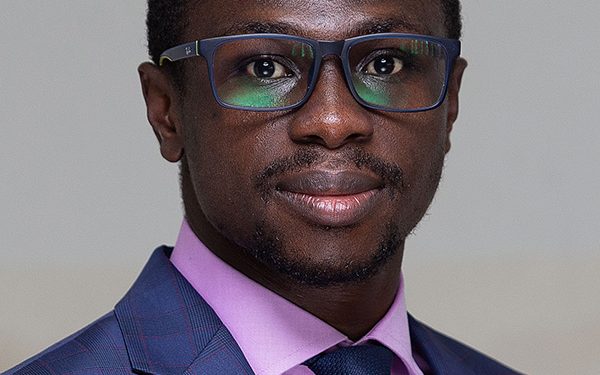OSP Pushes for Constitutional Backing and Dedicated Anti-Corruption Courts
The Office of the Special Prosecutor (OSP) is advocating for sweeping reforms to strengthen Ghana’s anti-corruption infrastructure, including constitutional backing, a dedicated anti-corruption court, and enhanced public education, amid mounting public scrutiny and growing disillusionment with the pace of progress in tackling graft.
Speaking during the NorvanReports X Space Discussion organised in collaboration with the Ghana Anti-Corruption Coalition (GACC) and the Hewlett Foundation on the theme, “State of Corruption in Ghana: Why the Needle Isn’t Moving – What Ghana’s Anti-Corruption Architecture is Getting Wrong”, the OSP’s Director of Strategy, Research and Communication, Samuel Appiah Darko, lamented the public’s impatience with the office’s pace of enforcement but maintained that foundational reforms are critical to long-term success.
“Although the OSP was established in 2018, it began functioning in earnest only around 2023,” said Lawyer Appiah Darko. “There is a perception that things must change within a year or two, but the reality is that building effective systems takes time.”
Quality vs Quantity in Complaints
Contrary to popular belief that citizens are reluctant to report corruption due to fear or apathy, Lawyer Appiah Darko said the OSP is inundated with reports—many of which, he noted, lack substance or are based on hearsay.
“We are receiving too many complaints, but the quality is the issue,” he said. “Many of the allegations lack even minimal evidence and do not point to corruption as defined under current Ghanaian law.”
Institutional Constraints and Legal Gaps
The Director stressed that public expectations often exceed the OSP’s statutory remit. He noted that while Ghanaians expect immediate action on high-profile cases, jurisdictional overlaps with other agencies—such as the Attorney General’s Department, Police, National Intelligence Bureau (NIB), and Economic and Organised Crime Office (EOCO)—limit the OSP’s operational scope.
“In many cases, we are expected to act where the law says we cannot,” Lawyer Appiah Darko said, citing the much-publicised case of a former sanitation minister as an example where legal limitations hampered prosecution.
He also criticised what he described as “inefficient laws,” pointing to offences like influence peddling and sextortion which, despite public perception, are not currently criminalised in Ghana.
Calls for Structural Reform
To address these systemic weaknesses, the OSP is proposing far-reaching reforms including:
The constitutionalisation of the OSP through a dedicated chapter on anti-corruption;
Passage of a Corrupt Practices Act to clearly define and consolidate offences;
Legal provisions for non-conviction-based forfeiture and the reversal of the burden of proof for unexplained wealth;
Mandatory verification and public disclosure of asset declarations.
“These reforms will remove ambiguity around the OSP’s mandate and give it full authority to investigate and prosecute all corruption-related offences,” he argued.
Judicial Cooperation and Sentencing Reform
Lawyer Appiah Darko called on the judiciary to play a more proactive role in the anti-corruption drive, suggesting the designation of specific courts to handle such cases and the implementation of specialised training for judges. He also raised concerns about Ghana’s stringent sentencing regime for corruption, which he believes discourages convictions for relatively small offences.
“For offences involving as little as GHS2,000, the minimum sentence is 12 years. This is disproportionate and counterproductive,” he said.
Mindset Shift and Education
Recognising that enforcement alone cannot eliminate corruption, the OSP is also prioritising public education and early intervention. Lawyer Appiah Darko proposed embedding anti-corruption studies into Ghana’s national education curriculum, starting from the basic level through to tertiary institutions.
“We are pushing for a mindset change. Prevention is just as important as prosecution,” he said, referencing troubling media narratives that glamorise individuals convicted of financial crimes.
The Bigger Picture
Despite criticism that Ghana’s anti-corruption drive is stagnating, Lawyer Appiah Darko urged patience and continued support for the OSP.
“If we’re not seeing the needle move despite our efforts, imagine where we’d be without these institutions,” he said. “What we need now is political will, institutional reforms, and civic responsibility to make the difference.”







